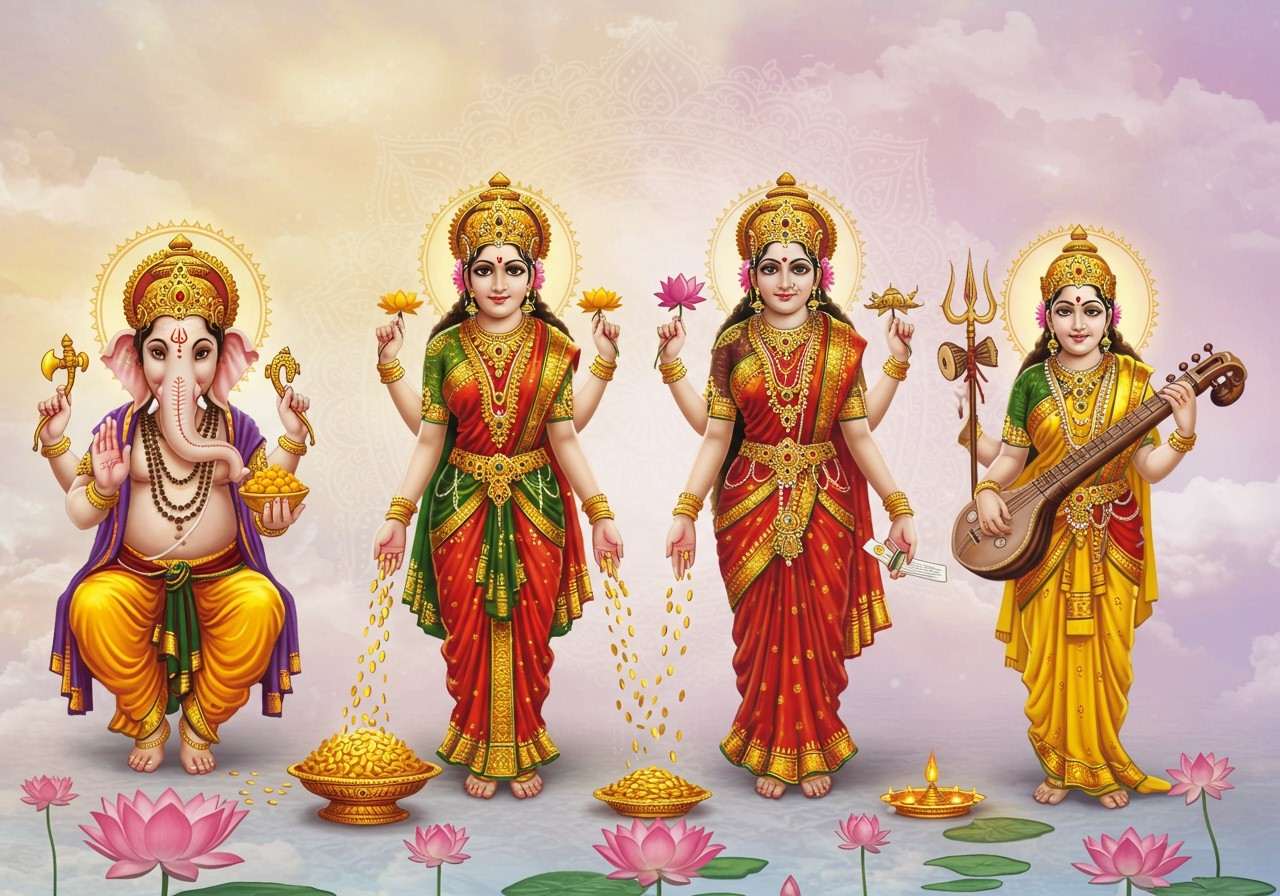
Hinduism, a vibrant tapestry of traditions, welcomes a multitude of gods and goddesses. Each deity embodies unique aspects of the universe and Brahman, the ultimate reality. This guide offers a glimpse into this rich pantheon, helping you understand the divine figures that grace our spiritual practices and everyday lives.
Understanding the Basics of Hindu Deities
- One Supreme Reality: While we honour many gods and goddesses, Hinduism rests on the belief in one supreme Absolute – Brahman. This ultimate reality manifests in countless forms to connect with us in personal and meaningful ways. Think of it like the sun’s light refracted into a rainbow of colours, each beautiful and unique, yet all originating from the same source.
- Diverse Deities, Diverse Blessings: Our gods and goddesses represent different facets of Brahman, embodying forces of nature, human emotions, and cosmic concepts. From the strength of Durga to the wisdom of Ganesha, each deity offers unique blessings and guidance.
- Poly-Monotheistic: A Tapestry of One: Hinduism is often described as poly-monotheistic. This means we recognize one Supreme Being (Brahman) that manifests as numerous gods and goddesses. It’s a beautiful paradox that celebrates both unity and diversity.
- A Living Tradition, Ever Evolving: Unlike some religions, Hinduism doesn’t have a single founder. It has grown organically over millennia, adapting and evolving while staying true to its core values. This makes it a dynamic and inclusive faith, embracing various paths to the divine.
The Trimurti: The Divine Trinity
At the heart of Hinduism lies the Trimurti, the divine trinity of Brahma, Vishnu, and Shiva. These three gods represent the fundamental forces that govern the universe.
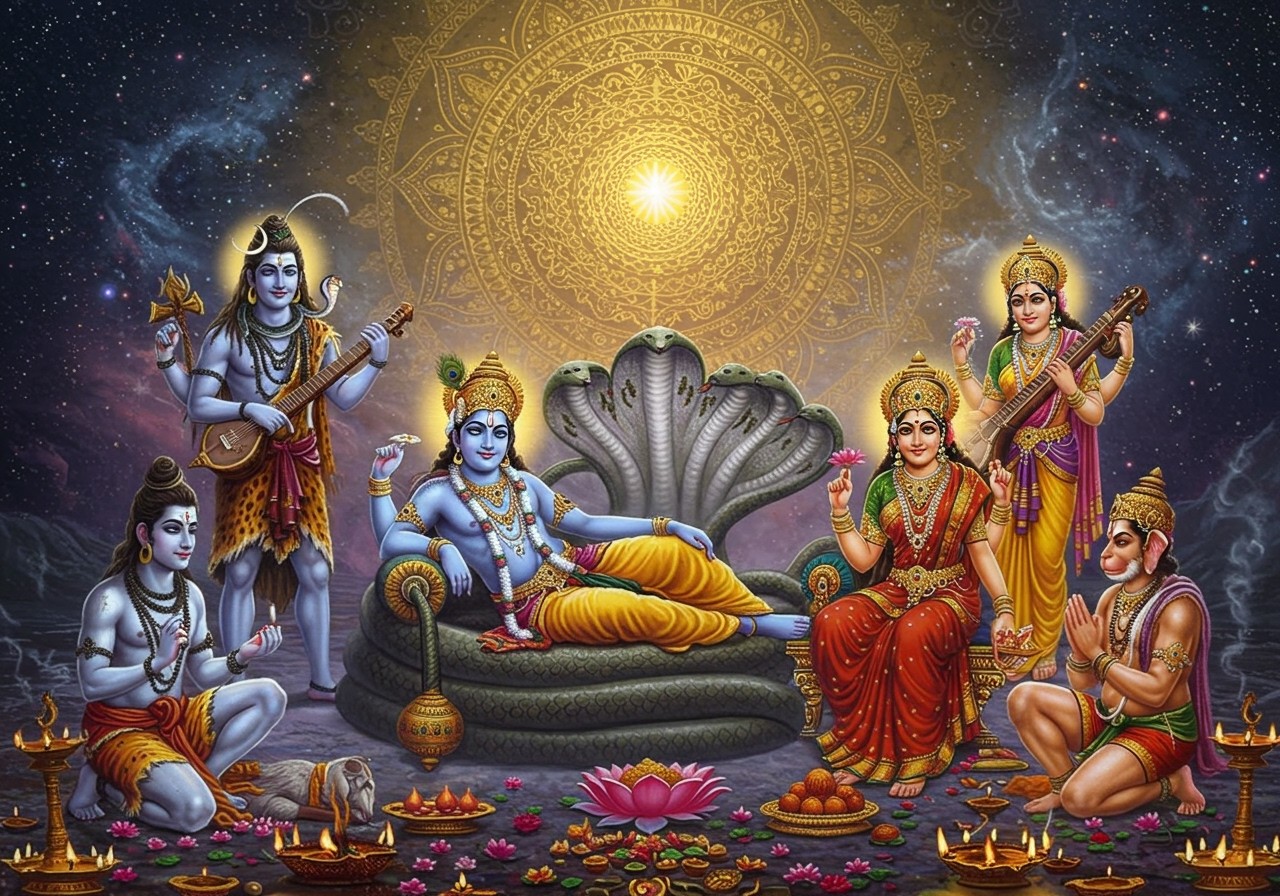
- Brahma, the Creator: Envisioned with four faces, Brahma symbolizes the all-encompassing vision of creation. He brought forth the universe and all beings. While less commonly worshipped today, his role as the creator remains fundamental.
- Vishnu, the Preserver: Vishnu, the preserver and protector, maintains the balance of the cosmos. He descends to Earth in various avatars (incarnations) like Rama and Krishna whenever dharma (righteousness) is threatened. Often depicted with blue skin, symbolizing infinity, Vishnu’s presence reassures us of divine protection. You can find beautiful statues of Vishnu and his avatars at poojn.in.
- Shiva, the Transformer: Shiva, often depicted as a yogi, represents destruction and transformation. While seemingly paradoxical, destruction in Hinduism is seen as a necessary precursor to renewal, much like the shedding of old leaves makes way for new growth. Shiva’s dance symbolizes the continuous cycle of creation and destruction that sustains the universe.
Key Goddesses: Embodiments of Shakti
The divine feminine, known as Devi or Shakti, manifests in various powerful goddesses, each embodying essential qualities.
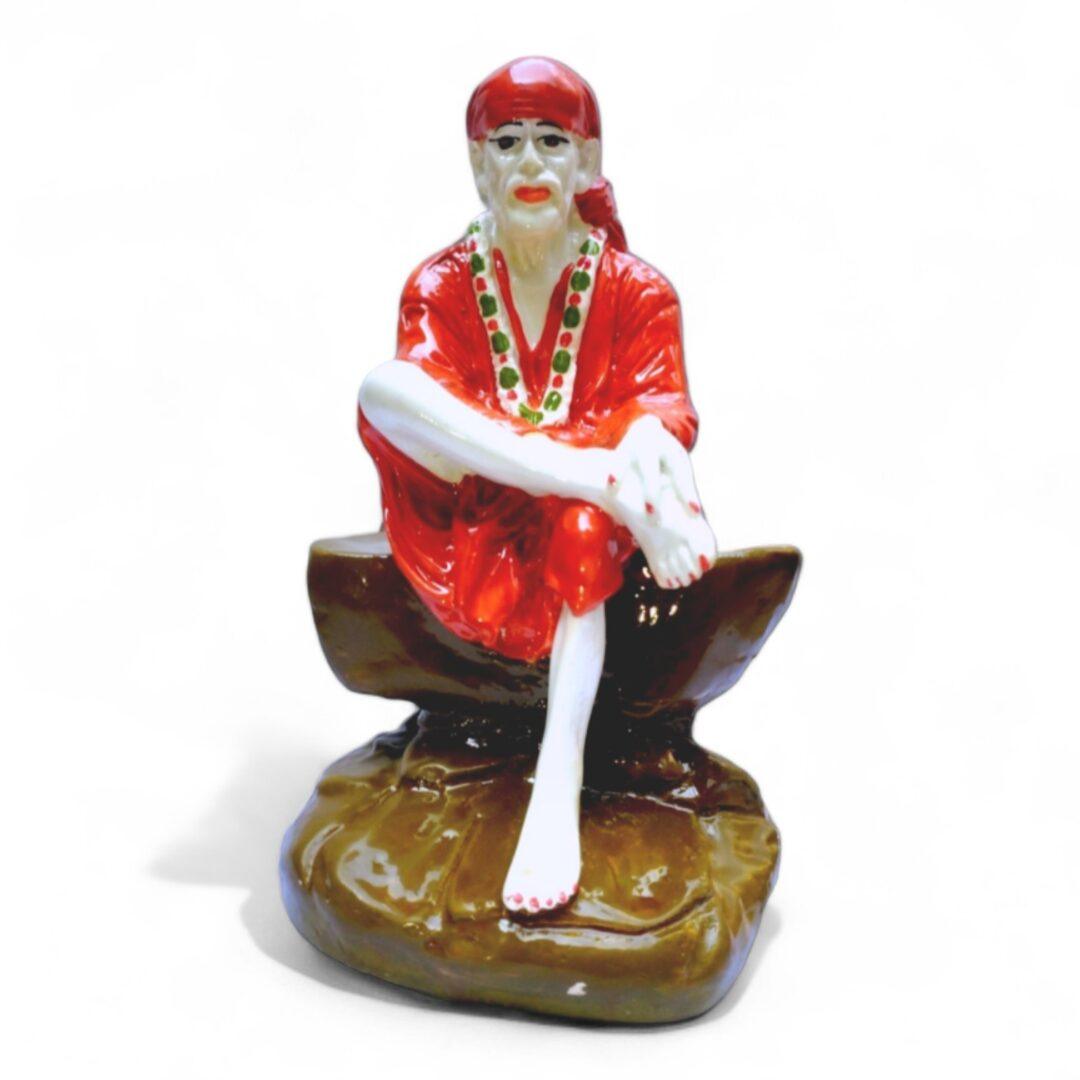
- Lakshmi, the Bestower of Prosperity: Lakshmi, the goddess of wealth and fortune, blesses us with abundance and good fortune. Depicted with lotus flowers, she represents purity and prosperity. Diwali, the festival of lights, is a special time to honour Lakshmi and invite her blessings into our homes and lives. Bring the blessings of Lakshmi into your home with beautifully crafted Lakshmi and Ganesh murtis available at poojn.in.
- Saraswati, the Embodiment of Wisdom: Saraswati, the goddess of knowledge, music, arts, and wisdom, inspires creativity and learning. Often depicted playing the veena, she guides students, artists, and seekers of knowledge. Honour Saraswati to enhance your intellectual and artistic pursuits.
- Durga, the Protector: Durga, the fierce warrior goddess, embodies strength and protection. She vanquishes evil forces and safeguards her devotees. Navratri is a time to celebrate Durga’s power and seek her blessings for courage and resilience.
- Parvati, the Divine Mother: Parvati, consort of Shiva and mother of Ganesha and Kartikeya, represents love, devotion, and fertility. She embodies the nurturing and compassionate aspects of the divine feminine.
Other Important Deities
- Ganesha, the Remover of Obstacles: Ganesha, with his elephant head symbolizing wisdom and intelligence, is revered as the remover of obstacles. He is invoked before new beginnings, ensuring smooth progress and success. Welcome Ganesha’s blessings into your life with a pure brass Ganesha idol from poojn.in.
- Hanuman, the Epitome of Devotion: Hanuman, the monkey god, exemplifies courage, strength, and unwavering devotion to Lord Rama. He is a powerful symbol of selfless service and inspires us to dedicate ourselves to a higher purpose.
Approaching the Divine: A Personal Journey
Connecting with the divine is a personal journey in Hinduism. We can approach the gods and goddesses in ways that resonate with our hearts and minds.
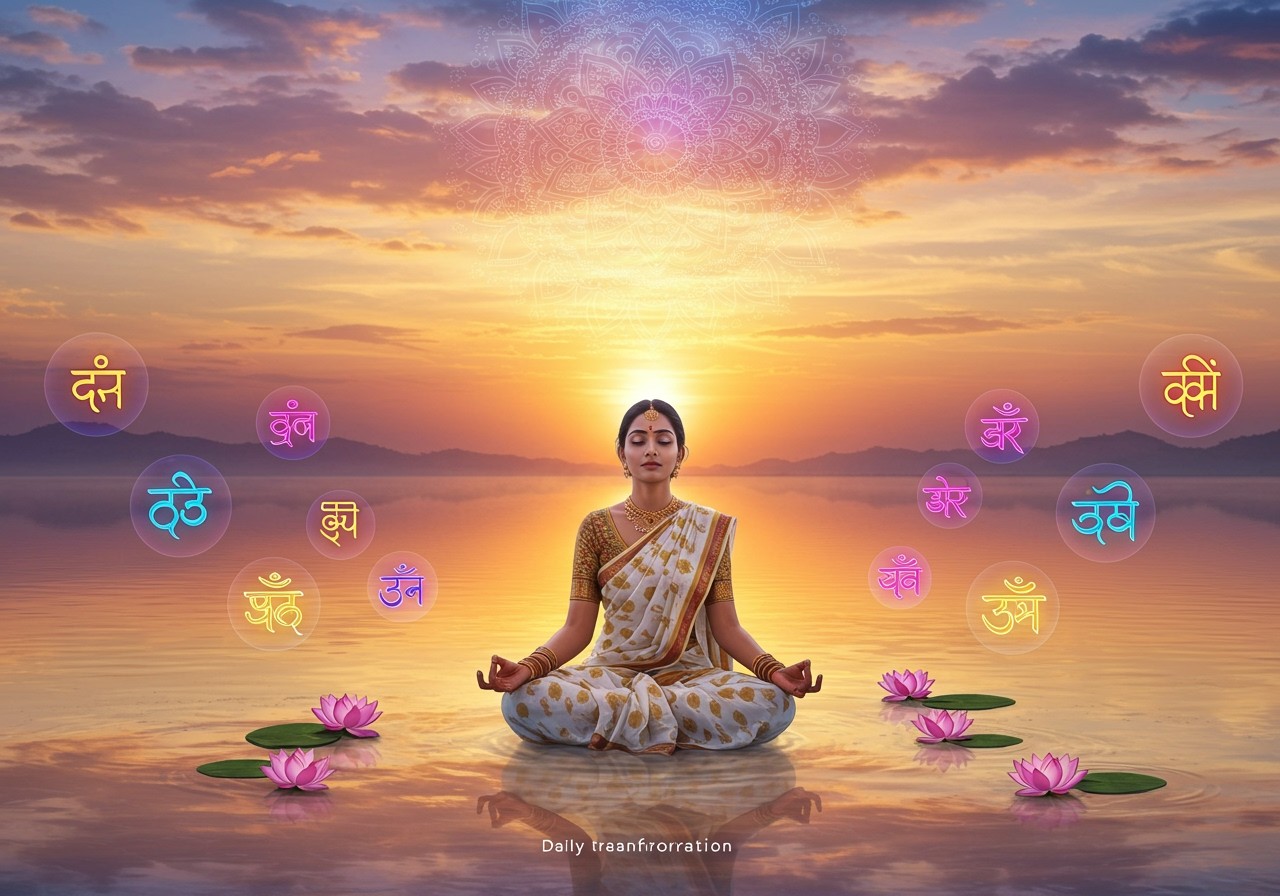
- Worship: A Dialogue with the Divine: Worship allows us to focus on specific qualities we wish to cultivate in our lives. Whether it’s strength, knowledge, or compassion, connecting with the deity that embodies that quality can inspire and guide us.
- Pluralism: Many Paths, One Destination: Hinduism embraces pluralism, recognizing that there are many paths to the divine. We can choose the deities and practices that resonate most deeply with us.
- Festivals: Celebrating the Divine: Festivals are joyous occasions to honour our gods and goddesses. Diwali, the festival of lights, celebrates Lakshmi. Navratri honours Durga’s power. Holi is linked to Krishna’s playful energy, and Mahashivratri is dedicated to Shiva. These festivals bring us together as a community and enrich our spiritual lives.
Core Concepts in Hinduism
Understanding these core concepts can deepen your appreciation for Hinduism and its teachings.
- Dharma: Living Righteously: Dharma encompasses ethics, duties, and righteous conduct. It guides us to live in harmony with cosmic order.
- Artha: Pursuing Prosperity with Purpose: Artha represents our pursuit of material well-being and prosperity, but always within the boundaries of dharma.
- Kama: Embracing Healthy Desires: Kama acknowledges the importance of healthy desires and passions in our lives. It reminds us to enjoy life’s pleasures responsibly.
- Moksha: Liberation from the Cycle of Rebirth: Moksha is the ultimate goal in Hinduism – liberation from the cycle of birth and death (samsara). It represents the union of the individual soul with Brahman.
Poojn.in: Your Companion on Your Spiritual Journey
At poojn.in, we understand the deep significance of these traditions and rituals in your life. We offer a wide range of authentic puja items, from beautifully crafted murtis to high-quality incense and prayer beads. You can explore our collection of brass statues, brass puja items, and marble dust statues to enhance your spiritual practices. Visit poojn.in today and discover everything you need to create a sacred space in your home.

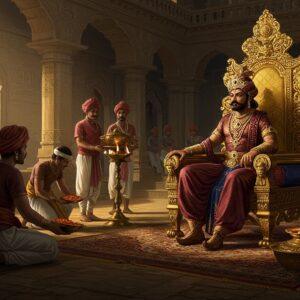
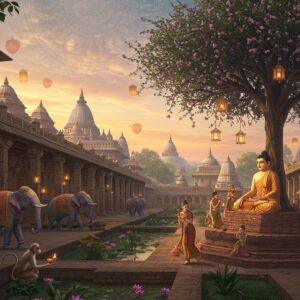
Clear and simple introduction to Hindu deities — a great guide for beginners to understand how gods and goddesses are part of daily life and spiritual practice!
Thank you for giving your such valuable remarks on our post’s this gives us motivation for making such post’s